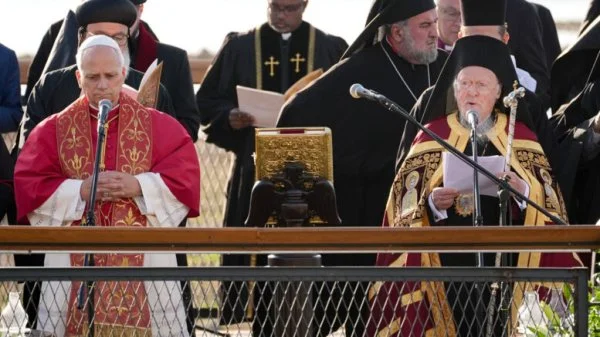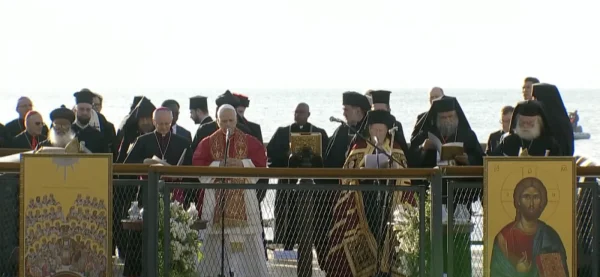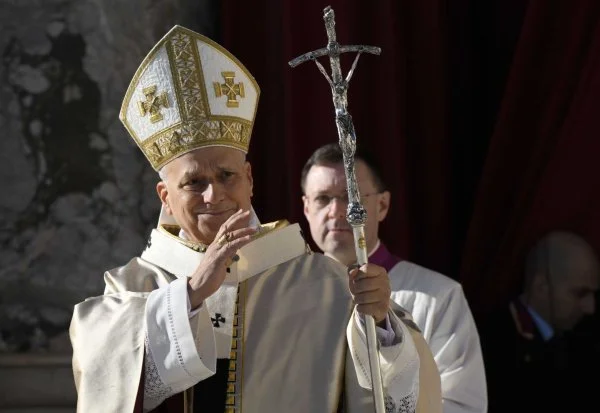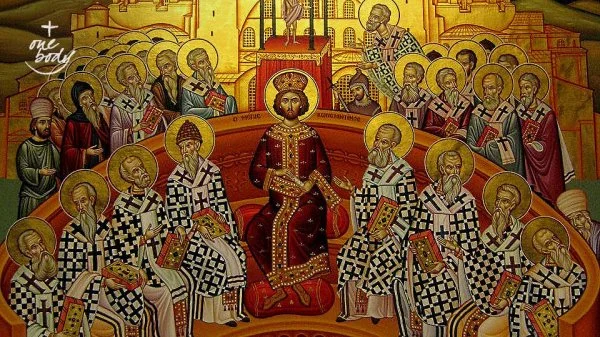- Français
- |
- Booklist
- |
- Week of Prayer
- |
- Links
- Areopagus - a forum for dialogue
- Academic journals
- Acronyms
- Bible tools
- Bibliographies
- Booksellers and publishers
- Churches
- Canadian church headquarters
- Directory of Saskatchewan churches
- Retreat centres
- Saskatchewan church and non-profit agencies
- Ecumenism.net Denominational links
- Anabaptist & Mennonite
- Anglican
- Baptist
- Evangelical
- Independent episcopal
- Lutheran
- Methodist, Wesleyan, and Holiness
- Miscellaneous
- Mormon
- Orthodox (Eastern & Oriental)
- Para-church ministries
- Pentecostal / charismatic
- Presbyterian & Reformed
- Quaker (Society of Friends)
- Roman & Eastern Catholic
- United and uniting
- Documents of Ecumenical Interest
- Ecumenical agencies
- Ecumenical Booklist
- Ecumenical Dialogues
- Glossary
- Human rights
- Inter-religious links
- Justice & peace
- Lectionaries
- Religious news services
- Resource pages
- Search Ecumenism.Net
- |
- Documents
- Ancient & Medieval texts
- Ecumenical Dialogues
- Interreligious
- Anabaptist & Mennonite
- Anglican
- Evangelical
- Lutheran
- Orthodox
- Reformed & Presbyterian
- Roman & Eastern Catholic
- United & Uniting
- Miscellaneous churches
- Canadian Council of Churches (CCC)
- Conference of European Churches (CEC)
- Interchurch Families International Network (IFIN)
- National Council of Churches in Australia (NCCA)
- Lausanne Committee for World Evangelism (LCWE)
- World Council of Churches (WCC)
- Other ecumenical documents
Church traditions
Documents from ecumenical agencies
- |
- Dialogues
- Adventist-Reformed
- African Instituted Churches-Reformed
- Anglican-Lutheran
- Anglican-Orthodox
- Anglican-Reformed
- Anglican-Roman Catholic
- Anglican-United/Uniting
- Baptist-Reformed
- Disciples of Christ-Reformed
- Disciples of Christ-Roman Catholic
- Evangelical-Roman Catholic
- Lutheran-Mennonite
- Lutheran-Mennonite-Roman Catholic
- Lutheran-Reformed
- Lutheran-Roman Catholic
- Mennonite-Reformed
- Mennonite-Roman Catholic
- Methodist-Reformed
- Methodist-Roman Catholic
- Oriental Orthodox-Reformed
- Orthodox-Reformed
- Orthodox-Roman Catholic
- Pentecostal-Reformed
- Prague Consultations
- REC-WARC Consultations
- Roman Catholic-Lutheran-Reformed
- Roman Catholic-Reformed
- Roman Catholic-United Church of Canada
- |
- Quick links
- Canadian Centre for Ecumenism
- Canadian Council of Churches
- Ecumenical Shared Ministries
- Ecumenism in Canada
- Interchurch Families International Network
- International Anglican-Roman Catholic Commission for Unity and Mission
- Kairos: Canadian Ecumenical Justice Initiatives
- North American Academy of Ecumenists
- Prairie Centre for Ecumenism
- Réseau œcuménique justice et paix
- Week of Prayer for Christian Unity
- Women's Interchurch Council of Canada
- World Council of Churches
- |
- Archives
- |
- About us
Archive for tag: Nicene-Constantinopolitan Creed
Archive pour tag : Nicene-Constantinopolitan Creed
Although the ancient city of Nicaea lies in ruins and the geographic centre of Christianity has shifted West, Pope Leo XIV and Christian leaders gathered at an archaeological site in Türkiye to celebrate the enduring faith set out in the Nicene Creed.
Orthodox Ecumenical Patriarch Bartholomew of Constantinople hosted the ecumenical prayer service and the common recitation of the Creed Nov. 28 at Iznik, site of the ancient Nicaea, about 80 miles southeast of Istanbul.
… Read more » … lire la suite »

 Permanent link: ecumenism.net/?p=14712
Permanent link: ecumenism.net/?p=14712
Categories: CNS • In this article: Bartholomew I, Nicaea, Nicene-Constantinopolitan Creed, Pope Leo XIV, Türkiye

 Lien permanente : ecumenism.net/?p=14712
Lien permanente : ecumenism.net/?p=14712
Catégorie : CNS • Dans cet article : Bartholomew I, Nicaea, Nicene-Constantinopolitan Creed, Pope Leo XIV, Türkiye
In an historic commemoration of the 1700th anniversary of the First Ecumenical Council, faith leaders gathered in Nicaea—modern-day Iznik, Türkiye – on 28 November to mark the 1700th anniversary of the First Ecumenical Council in the history of the church.
World Council of Churches (WCC) general secretary Rev. Prof. Dr Jerry Pillay joined His All Holiness Patriarch Bartholomew and Pope Leo XIV for an ecumenical prayer service.
… Read more » … lire la suite »

 Permanent link: ecumenism.net/?p=14704
Permanent link: ecumenism.net/?p=14704
Categories: WCC News • In this article: Bartholomew I, Jerry Pillay, Nicaea, Nicene-Constantinopolitan Creed, Pope Leo XIV, Türkiye

 Lien permanente : ecumenism.net/?p=14704
Lien permanente : ecumenism.net/?p=14704
Catégorie : WCC News • Dans cet article : Bartholomew I, Jerry Pillay, Nicaea, Nicene-Constantinopolitan Creed, Pope Leo XIV, Türkiye
At the heart of Pope Leo XIV’s journey to Türkiye this weekend will be a pilgrimage to Iznik, a small city about 140 km south of Istanbul. Iznik is better known to Church history by its Greek name, Nicaea. That’s where, 1700 years ago, the First Ecumenical Council was held. This Friday, Pope Leo is gathering with Ecumenical Patriarch Bartholomew I and other Christian leaders for an ecumenical prayer service to celebrate the landmark anniversary.
… Read more » … lire la suite »

 Permanent link: ecumenism.net/?p=14702
Permanent link: ecumenism.net/?p=14702
Categories: News, Opinion • In this article: Bartholomew I, Nicaea, Nicene-Constantinopolitan Creed, Pope Leo XIV

 Lien permanente : ecumenism.net/?p=14702
Lien permanente : ecumenism.net/?p=14702
Catégorie : News, Opinion • Dans cet article : Bartholomew I, Nicaea, Nicene-Constantinopolitan Creed, Pope Leo XIV
When Christians recite the Creed, it should prompt an examination of conscience about what they truly believe and what kind of example of faith in God they give to others, Pope Leo XIV wrote.
“Wars have been fought, and people have been killed, persecuted and discriminated against in the name of God,” he wrote. “Instead of proclaiming a merciful God, a vengeful God has been presented who instills terror and punishes.”
… Read more » … lire la suite »

 Permanent link: ecumenism.net/?p=14688
Permanent link: ecumenism.net/?p=14688
Categories: CNS • In this article: Nicaea, Nicene-Constantinopolitan Creed, Pope Leo XIV

 Lien permanente : ecumenism.net/?p=14688
Lien permanente : ecumenism.net/?p=14688
Catégorie : CNS • Dans cet article : Nicaea, Nicene-Constantinopolitan Creed, Pope Leo XIV
“We believe.” These are the first words of the original Nicene Creed, written 1,700 years ago at the Council of Nicaea. This ecumenical council in 325 AD produced a summary statement of Christian belief that has been professed by Christians around the world ever since. Both for its longevity and its universal appeal, the Nicene Creed stands apart from every other statement of Christian belief. It also has a profound ecumenical significance, which I explored in January’s One Body article, Do You Believe This?
At the end of November, Pope Leo XIV is expected to visit Nicaea with Orthodox Patriarch Bartholomew. Each year, the pope and patriarch send delegations to the other to celebrate their patronal feasts of Sts. Peter and Paul in Rome on June 29 and St. Andrew in Constantinople (Istanbul) on November 30. This year, in the modern city of Iznik, where Nicaea once was, the two leaders will together commemorate the 1,700th anniversary of the first ecumenical council. They will also commend the church to continue in the dialogue of life and love begun at the end of the Second Vatican Council.
… Read more » … lire la suite »

 Permanent link: ecumenism.net/?p=14650
Permanent link: ecumenism.net/?p=14650
Categories: One Body, Opinion • In this article: Nicaea, Nicaea 2025, Nicene-Constantinopolitan Creed, WCC Commission on Faith and Order

 Lien permanente : ecumenism.net/?p=14650
Lien permanente : ecumenism.net/?p=14650
Catégorie : One Body, Opinion • Dans cet article : Nicaea, Nicaea 2025, Nicene-Constantinopolitan Creed, WCC Commission on Faith and Order
The Nicene Creed is more than a statement of faith — it is a powerful sign of unity among Christians, Pope Francis said as he welcomed young priests and monks from Oriental Orthodox Churches to the Vatican.
“Whereas the devil divides, the symbol unites!” the pope told the group taking part in a study visit to Rome promoted by the Dicastery for Promoting Christian Unity. He explained that the Creed is called a “symbol” because it not only summarizes the core truths of Christianity but also serves as a sign of identity and communion among believers.
“How beautiful it would be if, each time we proclaim the Creed, we felt united with Christians of all traditions,” he said.
… Read more » … lire la suite »

 Permanent link: ecumenism.net/?p=14528
Permanent link: ecumenism.net/?p=14528
Categories: CNS • In this article: Nicaea 2025, Nicene-Constantinopolitan Creed, Oriental Orthodox, Pope Francis

 Lien permanente : ecumenism.net/?p=14528
Lien permanente : ecumenism.net/?p=14528
Catégorie : CNS • Dans cet article : Nicaea 2025, Nicene-Constantinopolitan Creed, Oriental Orthodox, Pope Francis
The Lutheran World Federation (LWF) and the Orthodox Church have issued a joint statement on the addition of the Filioque clause to the Nicene-Constantinopolitan Creed, a theological issue that has divided the Eastern and Western Church traditions for almost a thousand years.
The word ‘filioque’ (‘and the Son’ in English) to describe the procession of the Holy Spirit, was added by the Latin Church to the Creed centuries after its composition to counter Arianism but the Eastern Church has always protested this insertion.
In a Common Statement of the Joint International Commission on Theological Dialogue between the LWF and the Orthodox Church, both partners “suggest that the translation of the Greek original (without the Filioque) be used in the hope that this will contribute to the healing of age-old divisions between our communities and enable us to confess together the faith of the Ecumenical Councils of Nicæa (325) and Constantinople (381).”
… Read more » … lire la suite »

 Permanent link: ecumenism.net/?p=14335
Permanent link: ecumenism.net/?p=14335
Categories: Dialogue, Lutheran World Information • In this article: 1700th anniversary, filioque, Lutheran World Federation, Nicaea, Nicene-Constantinopolitan Creed, Orthodox

 Lien permanente : ecumenism.net/?p=14335
Lien permanente : ecumenism.net/?p=14335
Catégorie : Dialogue, Lutheran World Information • Dans cet article : 1700th anniversary, filioque, Lutheran World Federation, Nicaea, Nicene-Constantinopolitan Creed, Orthodox








